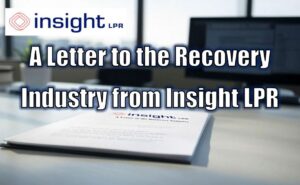
GUEST EDITORIAL
5 May 2020 – I recently read the “McClellan Brief” with article appearing on CUCollector that mentions meetings between ARA, AFA, RSIG, Hardings Brooks Insurance agency and all of the state level recovery associations. (In the interest of full transparency, Eagle XX Group is also part of the discussions they were not mentioned them in this article.)
As a participant in those meetings and presumably one of the leaders who supposedly has “not taken the action necessary to retain the services of a Washington DC lobbyist to protect the interests of its members and the repossession industry”, I wanted to provide some additional insight on these meetings and the information discussed.
Over the course of these conference calls, participants have been advised that the initial lobbyist contacted said that they did not believe a lobbying effort at this point would be successful, essentially that it is too difficult to hit a moving target and that things were changing too quickly for a national lobbying effort to be effective.
It was also discussed in the initial calls, that rather than just the repossession industry being involved, since collections in general are to be affected by this proposed legislation that perhaps the repossession industry work with the buy here-pay here and used car dealers, collection and banking industries as they already have an established and effective lobbying arms. When they were reached out to, it was suggested that the repossession industry hold off on doing anything individually as they already had efforts underway and the repossession industry would benefit from those efforts. While a necessary function of auto finance industry, the repossession industry is still seen as the black sheep and no Congressman or Senator wants to stand up and proclaim support for an industry that is only seen to hurt their voters.
It also has not been discussed nor decided who would be signing the contract to hire the lobbyist and who then is ultimately held responsible for the payment of the $150,000 a year price tag. Previous CUCollector and associations postings said that the “major groups” with no definition as to which groups were major would pay $2300 per month and state associations would pay $500 per month. Our problem with this is we have not been able to get the math to add up, nor see any financial documentation to prove that any group at this point is able to honor that financial commitment and what would become a contractual requirement. RSIG knows that its business has already been and continues to be impacted by the financial institutions (not the government’s) decisions to reduce collection efforts.
Most of the state associations present on the meetings have struggling memberships and consider themselves “Sister Associations” that share their administrative functions and to our understanding not significant financial backing because everyone in the industry is struggling and because they haven’t seen on the state level where associations have been able to gain ground in bringing meaning legislation to pass. While some on the calls have said they would pay the $500 per month out of their own pockets for their state associations, what will happen come months 3 and 4 or 9 and 10 and rather than $500 – they now see it is $6000 out of pocket, at a time when their own businesses may be struggling? One participant in the calls said that his group is mainly comprised of members of all the other groups so if they were to pay “Their members would say they are paying twice”. Well that is true of many people in the industry who have multiple affiliations – so which group should be responsible for paying?
These are all issues that make this lobbying effort much more complicated than alluded to in Mr. Collins “brief” and shows that it is not a simple decision as he alluded to.
RSIG has been following these laws as they move through Congress, reaching out to our members and the industry and providing everyone regardless of industry affiliation form letters for members of the industry to provide to their representatives. We have done this because we firmly believe that the more people who reach out to their representatives, the better chance the industry has of being heard and noticed. The Senate and Congressional representatives respond best when they see and feel how their own constituents are impacted and demand change. We applaud anyone who is taking an active role in contacting their Washington DC representatives to explain the implications of the legislation that is being discussed that would impose any sort of long term ban or moratorium on repossession activity and encourage these efforts to continue, but feel it is best done by continuing to reach out on the state level to make sure your voices are heard. That is what we are and have been doing for our members and will continue to do so – while maintaining affordable access to top quality insurance to protect repossession agencies.
While writing this response, CUCollector put out an article saying the NCLC – National Consumer Law Center – issued a proposal for the broad based consumer protections which echo some of the legislative proposals – this further proves one thing – these protections while emotionally geared towards protecting consumers are really about the lawyers who chose to represent them – and in our experience the economy is driven by the financial industry and the lawyers. The financial industry will not let a ban on collection efforts happen. They know the true cost to consumers if debts are left uncollected and they best have a way to get that point across to the Congressmen/women and Senators.










Facebook Comments